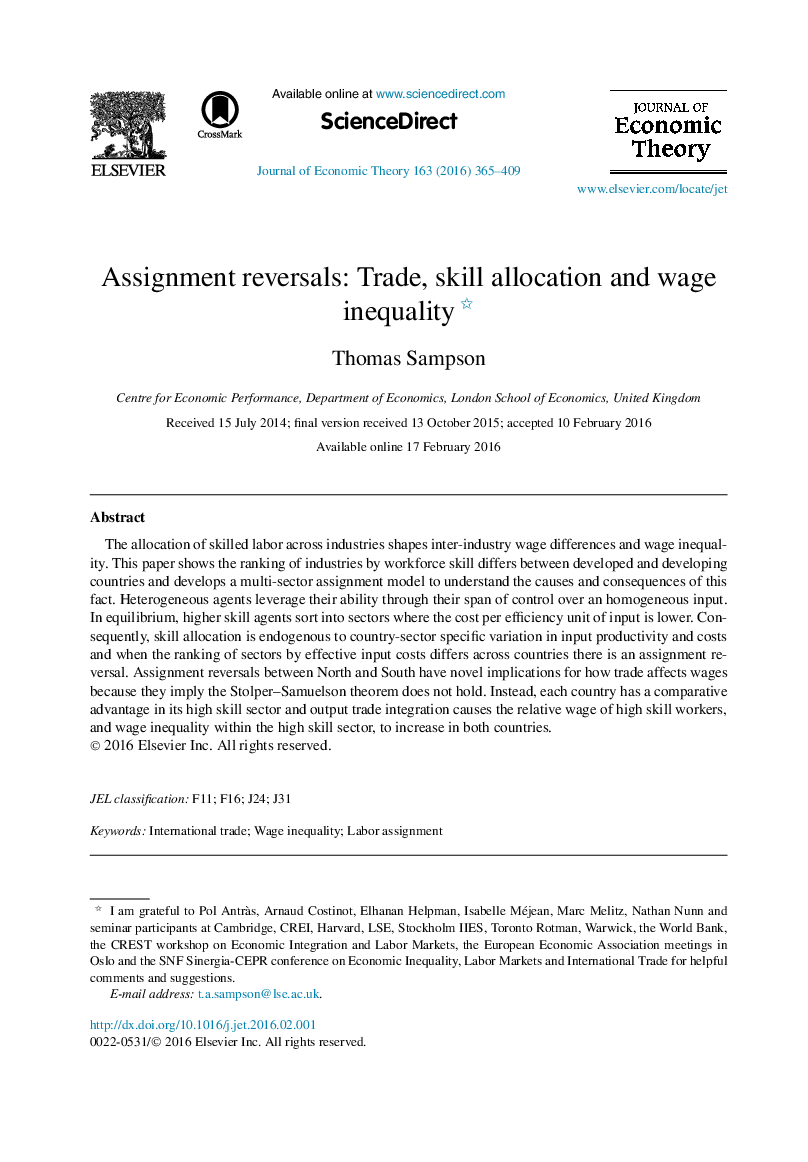| Article ID | Journal | Published Year | Pages | File Type |
|---|---|---|---|---|
| 956677 | Journal of Economic Theory | 2016 | 45 Pages |
The allocation of skilled labor across industries shapes inter-industry wage differences and wage inequality. This paper shows the ranking of industries by workforce skill differs between developed and developing countries and develops a multi-sector assignment model to understand the causes and consequences of this fact. Heterogeneous agents leverage their ability through their span of control over an homogeneous input. In equilibrium, higher skill agents sort into sectors where the cost per efficiency unit of input is lower. Consequently, skill allocation is endogenous to country-sector specific variation in input productivity and costs and when the ranking of sectors by effective input costs differs across countries there is an assignment reversal. Assignment reversals between North and South have novel implications for how trade affects wages because they imply the Stolper–Samuelson theorem does not hold. Instead, each country has a comparative advantage in its high skill sector and output trade integration causes the relative wage of high skill workers, and wage inequality within the high skill sector, to increase in both countries.
